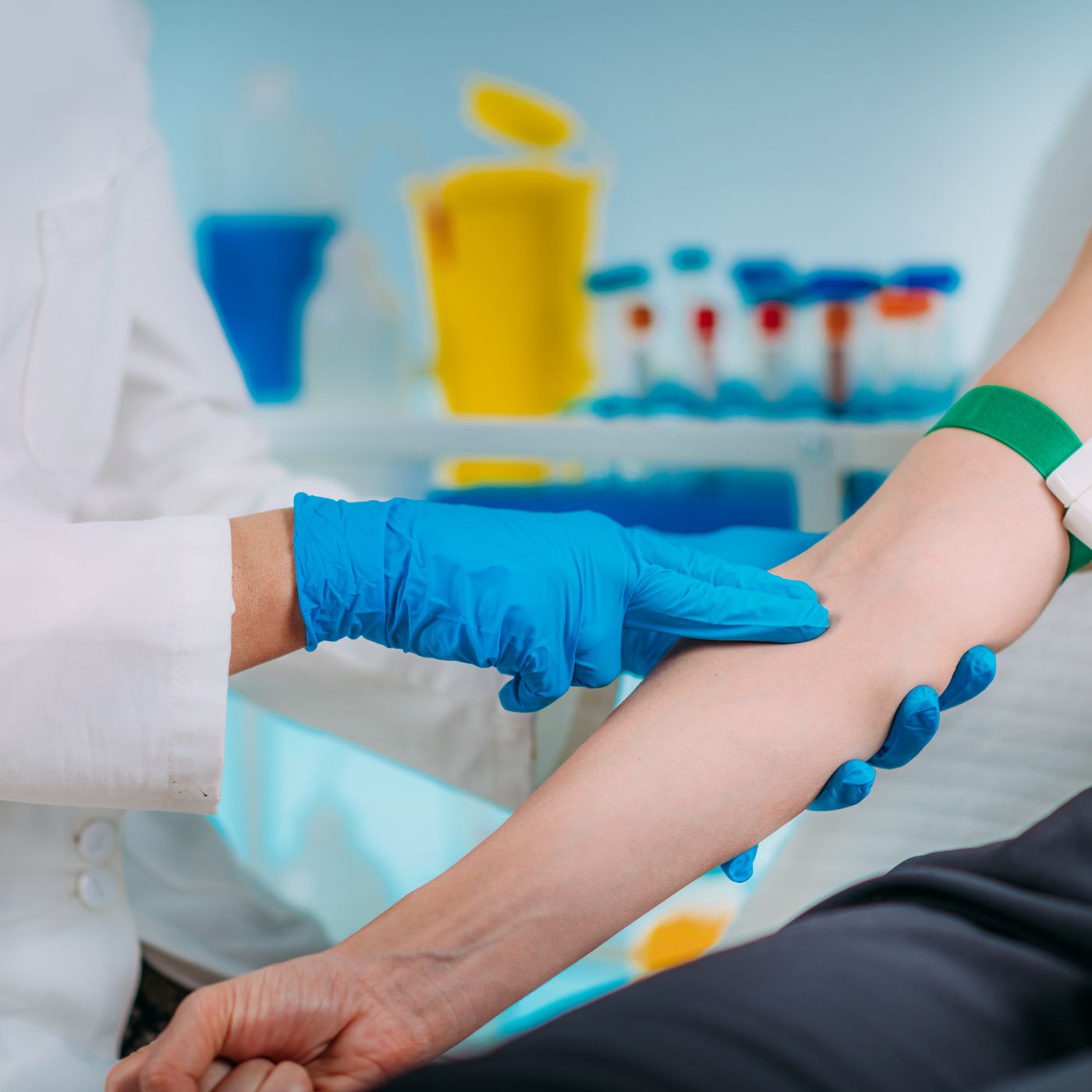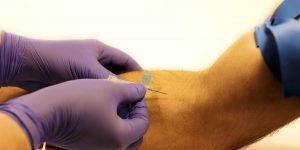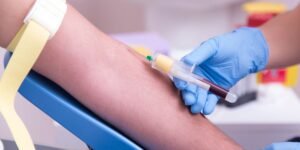Phlebotomy is a skill that you are likely to find useful throughout your clinical career, it may even be the main focus of your role. We often hear the terms ‘venepuncture’ and ‘phlebotomy’ used interchangeably. There are subtle differences:
Venepuncture – Accessing a vein through puncturing it with a needle for any medical purpose.
Phlebotomy – Accessing a vein through puncturing with a needle specifically for the purpose of obtaining a blood sample.
This ‘Quick Guide’ will cover why phlebotomy is important, who can become a phlebotomist, how to start working in phlebotomy, types of training required, practice competency and remaining up to date.

Why is phlebotomy important?
Phlebotomy is the key skill required to take a blood sample. Blood sampling is a routine procedure that may be completed at a GP surgery, Pharmacy, Out-patient clinic, in hospital, and in a growing number of clinical environments.
Blood samples can be used for diagnosis of many conditions, ongoing management of known conditions, blood group typing, genetic testing, immune response from vaccination and the list goes on. It is an essential tool across the healthcare spectrum.
Who can become a phlebotomist?
Historically phlebotomy was a task that was completed by doctors and nurses. As the use of blood analysis has expanded in to such a wide spectrum of clinical areas, the types of professionals that are taking blood has also expanded.
It is not uncommon for paramedics, radiographers, healthcare support workers and even students in healthcare to be competent in taking blood. In these examples, taking blood is an addition element to their clinical role. However, some of the most proficient people at taking blood are dedicated phlebotomists.

How to start working in phlebotomy
For many health professionals, phlebotomy may have been included in their initial training.
For those looking to become a phlebotomist, there is no formal entry requirement to train. It may be helpful to have experience working in healthcare or be working towards a health & social care qualification.
As with any patient facing role in health, someone who is planning to become a phlebotomist should be friendly, professional, caring, able to communicate well and be able to act as an advocate for their patient.
What training do I need to become a phlebotomist?
Phlebotomy is an ‘invasive’ procedure, therefore there are risks associated with completing the clinical skill. Any education programme must:
- Provide the theory of the processes and the anatomy & physiology that underpins this
- Ensure the practical skills are clearly demonstrated with opportunity for the learner to practice these skills on a training model
- Include a supervised period in practice where competency can be assessed and signed off
It is also important for those that have been out of practice for a significant period to update their training before commencing practice again.
What training options does Health Academy have available?
At Health Academy we understand that everyone learns in different ways and also everyone’s circumstances may be different. We have therefore created three different training routes.

Online Self-Paced – Our ‘Fundamentals of Phlebotomy’ online course is a fantastic option for those looking for a refresher training or those just needing the theory training as they will be completing all practical elements supervised in practice.

Virtual Classroom – Our most popular option, as the theory and practical elements are completed during a one day Zoom course. You will be sent out training kit free of charge which you can use during the training and then keep the kit for practice in your own time. As a bonus, you will also get 12 months of free access to our online ‘Fundamentals of Phlebotomy’ course. Check our upcoming dates here.
Get our phlebotomy training kit free with this course

Face-to-Face – We run our face-to-face sessions for organisations that are looking for training for a group of staff. If you are looking for this training for a group please contact us.
Assessment of competency
Any training in phlebotomy should include supervised practice and competency assessment. At Health Academy we have developed a competency workbook that is developed in line with the WHO Guidelines on Drawing Blood. Our competency workbook is downloadable by clicking on the workbook image.

Staying up to date
As with any clinical skill, it is important to stay up to date with current best practice guidelines. If you are working in phlebotomy you could become a member of the National Association of Phlebotomists and sign up to regular updates. You can also sign up to the HealthEd Blog where we will keep you up to date with any key changes in the field.










